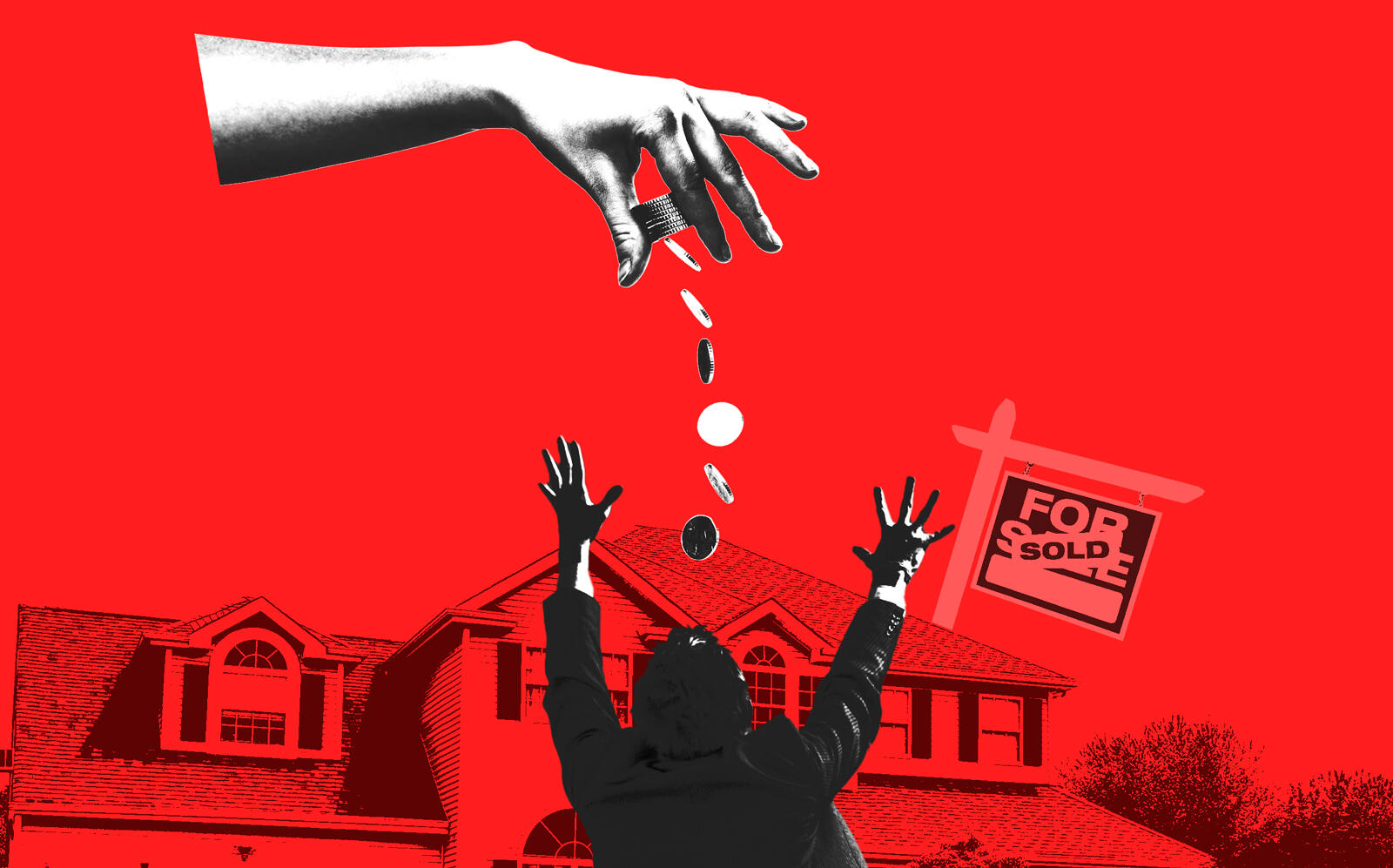 Real estate agents “blackballed” home for sale by owner
Real estate agents “blackballed” home for sale by owner
Trending
Watchdog org: Put home-sale commissions in buyers’ hands
Report raises red flags about brokerages' strikingly similar fees

UPDATED Dec. 3, 2021, 3:11 p.m.: It’s enough to make any consumer watchdog suspicious.
Agents’ commissions across more than 10,000 Northeast home sales examined by the Consumer Federation of America were highly uniform, the group revealed Tuesday.
“Uniform rates are strong evidence of industry price setting,” said Stephen Brobeck, a senior fellow at the organization. “And if prices are being set, it’s important to understand why, so that effective measures can be taken to increase price competition.”
Not only do agent commissions not vary much, but they are higher in the U.S. than just about any other developed nation. Agents usually earn 5 to 6 percent of a home sale price, a rate that has remained consistent for decades.
Using multiple listing service data, the nonprofit analyzed home sales in 21 eastern U.S. cities. Brobeck said getting the data was a challenge for the watchdog group, which aims to get home sale commission figures for the other half of the country as well.
At least 84 percent of buy-side rates were the same in cities like Atlanta, Baltimore, Columbus and Hartford, Connecticut. Uniformity was even greater in Grand Rapids, Michigan; Memphis, Tennessee; Roanoke, Virginia; and Minneapolis: At least 93 percent of buy-side commission rates were the same.
The findings come just two weeks after the National Association of Realtors board announced plans to require multiple listing services to display a listing broker’s offer of compensation for each active listing on its consumer-facing websites (such as Zillow and Streeteasy) and other MLS feeds.
While NAR’s efforts put buyer agents on notice and could reduce steering, it wouldn’t change rate competition as sellers continue to pay buyer-agent commissions.
Read more
 Real estate agents “blackballed” home for sale by owner
Real estate agents “blackballed” home for sale by owner
 Broker commissions could surge 16% this year
Broker commissions could surge 16% this year
Sellers pay commissions for both the listing agent and buyer’s agent, which means buyers have no discretion to negotiate commissions. Though sellers can, they virtually never do out of fear that brokers will steer clients to other properties if the rate is too low.
Still, the brokerage industry’s primary trade group argues that commissions are competitive.
“The market decides commission rates,” a NAR spokesperson said in a statement. “Commissions are — and have always been — negotiable, while consumers have the choice of whom they want to pay and how they want to pay them.”
Nonsense, the consumer group says.
“The only effective way to allow price competition would be to uncouple or untie the commissions so that sellers pay only listing-agent commissions while buyers only pay buyer-agent commissions,” Brobeck said.
The watchdog’s hope is that the change would foster negotiations between buyers and agents, encourage negotiation of listing-agent commissions, and free up discount broker sites like Redfin from having to offer buyer agents 2.5 to 3 percent commissions.
Uncoupling would likely lower the prevailing 5 or 6 percent commission rate to 3 or 4 percent, Brobeck said. That would reduce total annual commissions from about $100 billion to roughly $70 billion or $80 billion and make homeownership more affordable, he added.
Others aren’t so sure. Commissions have edged down in recent years to a new low of 4.94 percent in the U.S., according to Real Trends, and the brokerage industry argues that if buyers had to pay the buyers’ agent commission on their own, it would shut more of them out of homeownership.
“Forcing buyers to take on the additional out-of-pocket expense would cause added financial hardship and could freeze out many from the market entirely, particularly first-time and low- and middle-income homebuyers,” the NAR spokesperson said, adding that the expense could also stop homebuyers from seeking help from an agent.
But Brobeck said that cost would be offset because sellers would accept a lower bid, knowing they don’t have to give the buyer’s agent a cut.
“The buyers’ agent commission is usually added to the sale price of a house, so buyers will not have to pay in gross any more money, even if they don’t negotiate commissions down with their buyer agent,” Brobeck said.
This article has been updated with comments from the National Association of Realtors.




